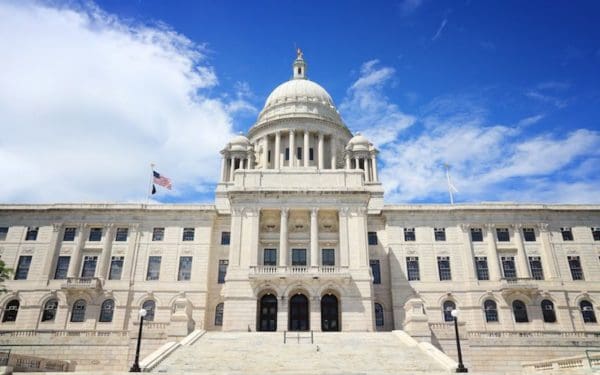
The law requires drastic cuts in the state's climate-damaging emissions. Photo Credit: Shutterstock
Last week, the highest court in Massachusetts unanimously ruled that power generators must drastically cut their carbon pollution year after year through 2050. In doing so, the high court recognized the incontrovertible fact that carbon pollution damages our climate, threatens our health, and hurts our economy.
It was the second time the Massachusetts Supreme Judicial Court has stood with CLF and upheld the mandates of the 2008 Global Warming Solutions Act. This landmark law requires drastic cuts in the state’s climate-damaging emissions, including from electricity generators, to help stave off the worst effects of climate change.
As we previewed when the case was filed, this important decision seals the long-term fate of fossil fuels in Massachusetts. The age of dirty and harmful fossil-fueled electricity in the Commonwealth is over as we move decisively into the age of clean and renewable power.
Massachusetts Court Stands with CLF Against Carbon Pollution
So what happened? Last year, the New England Power Generators Association – a regional trade group for fossil-fuel power plant owners – tried to get its members an exemption to allow them to operate outside of the Global Warming Solutions Act (GWSA). It did so by speciously claiming that limiting carbon emissions from in-state power plants would increase, rather than decrease, climate-damaging emissions. CLF filed a “friend of the court” brief in support of the law, urging the Court to reject this self-serving, meritless claim.
Ultimately, the Court rejected the power generators claim. In doing so, it established the unambiguous power of the Global Warming Solutions Act holding that “is designed to go well beyond business as usual in terms of reducing emissions: to upend, rather than uphold, the status quo.”
The Commonwealth Can, and Should, Regulate Climate-Damaging Emissions
This was the first direct challenge to the state’s power to enact tough regulations requiring real emission reductions. And it failed spectacularly – as it should have. Consistent with its decision two years ago, the high court confirmed that the GWSA does not restrict the type of emissions the Department of Environmental Protection can regulate to attain the actual, measurable, and permanent emissions reductions that the law requires. This is critically important, as we can expect other polluters in the future to try – just like the region’s power generators did – to argue that they are exempt from the law.
Who might try this next? Well, just recently the state’s 41 municipally owned power plants hired expensive lawyers to make this same argument on their behalf. They also claim it would be illegal for the State to require them to supply clean power by 2050 just like every other power supplier and utility in the Commonwealth. These utilities and their out-of-state lawyers should take some time to read this recent opinion and think long and hard about whether they want to fight the GWSA. Given the high court’s ruling, their time and money would be better spent by helping the people they serve and doing their part to fight climate change.
The Power to Implement the Global Warming Solutions Act Goes Beyond 2020
In its decision, the Supreme Judicial Court also made it clear that state agencies have the authority – and, importantly, the obligation – to continue to regulate emissions beyond the initial 2020 limit set by the legislature in 2008. That initial limit is, according to the court, “a crucial step along the way, but not a termination point.” In order to achieve the plainly stated purpose of the GWSA, the Department of Environmental Protection is expected and required to create and enforce new regulations in 2021. These should be based on updated information to ensure that state meets its limits for 2030, 2040, and 2050.
The Global Warming Solutions Act is one of the strongest climate laws in the country. It positions Massachusetts as a leader on climate change solutions and will help our state build a future based on clean, renewable energy. This decision from the Massachusetts Supreme Judicial Court underscores the importance of this law, and the critical need for everyone – especially power generators – to do their part in the fight against climate change.



